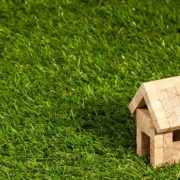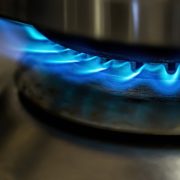What Repairs Are Landlords & Tenants Responsible For?
Renting properties comes with legal responsibility, and as a landlord – or tenant – it’s in your best interest to know what the responsibilities of each party are. The legal framework of the landlord-tenant relationship is set out in The Landlord and Tenant Act 1985, which regulates the rental market.
Landlord Responsibilities
As per law, the landlord must rent the property in a state that is fit to live in. The structure of the building must be stable, while the electric, water, and heating systems must be perfectly functional and meet the safety standards. Functional sanitation facilities are also mandatory – at least a sink, a toilet and a bathroom are required for every property. Furthermore, any possible threat to the tenant’s life or health, like damp, mould or pests should be addressed before the tenant moves in.
After the tenant has moved in, gas safety is probably the most important responsibility of a landlord. A regular check-up should be done every year to make sure the property is still safe to use and that all appliances, wires, exhaustion system and other components are working perfectly.
All the basic utilities and their pipework fall within the responsibility of the landlord. However, appliances that have been installed by the tenant are the tenant’s responsibility. The landlord must only ensure that these have been connected safely to the entire system.
The landlord should also install detectors for fire, smoke and CO2 on every level of the property.
Tenant Responsibilities
The legal responsibilities of a tenant are, among others, cleaning and maintaining proper sanitary conditions on the property, and reporting any damage caused to the property, regardless of what or who caused it. The tenant is solely responsible for damage caused by self, their family or their visitors.
This also means that they are responsible for using all-electric or gas appliances as stated in their manuals. Any damage created by improper use of appliances or interference with any of the electrical, gas or water systems is not the landlord’s responsibility. In this case, the costs can be deducted from the tenancy deposit. If the deposit does not cover all the expenses, the landlord has the right to seek a court order.
Moreover, The Landlord and Tenant Act 1985 states that landlords don’t bear any legal liability for damage that has not been reported by the tenants or that has not been detected during the regular checkup.
Regardless of who bears the responsibility for the damage, it’s up to the parties to decide who carries out the repairs. If the tenant wants to fix the issue themselves, they must ask for permission from the landlord. If the landlord disagrees and contacts their specialist, the tenants must ensure access to the property.
Issues that are not included in Section 11 of the Act, such as who bears responsibility for the interior walls design or who carries out minor repairs to windows and doors, can be agreed upon between the two parties before signing the contract. Although not stated in the Act, minor repairs such as replacing a bulb or fixing a door are usually the tenant’s responsibilities.


